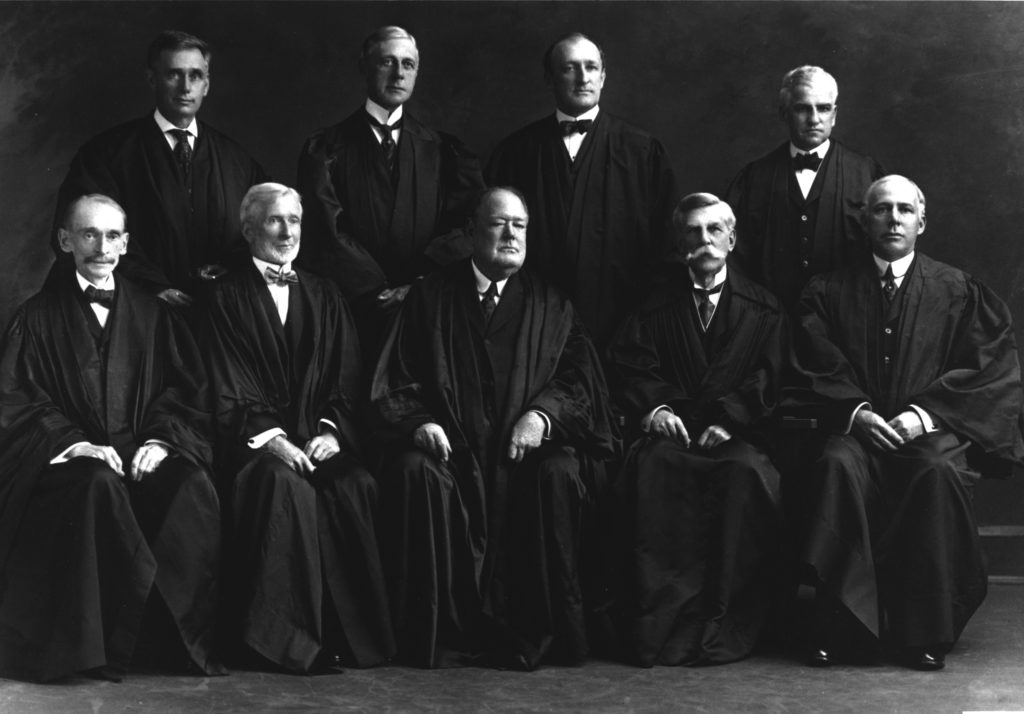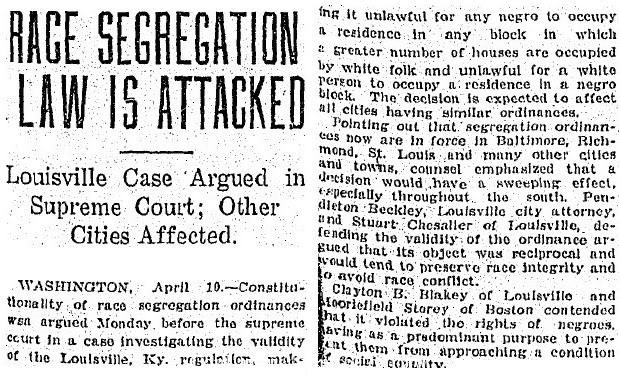



The city of Louisville, Kentucky prohibited black people from buying homes in predominantly white neighborhoods. The law likewise prohibited white people from buying homes in predominantly black neighborhoods. The government defended this “exercise of the police power” on the ground that “maintain[ing] racial purity . . . tends to promote the public peace by preventing racial conflicts.” Charles Buchanan, a white man, was prohibited from selling his home to William Warley, a black man.
Buchanan challenged the Louisville ordinance as a violation of the Fourteenth Amendment. The law complied with Plessy v. Ferguson’s separate-but-equal rule, because it treated all races equally. Therefore, Buchanan could not state a claim under the Equal Protection Clause. However, he could state a claim under the Due Process Clause. Specifically, Buchanan contended that the ordinance deprived him of “property” without the due process of law. That is, the Louisville law reduced the value of his home by excluding potential buyers of the opposite race.